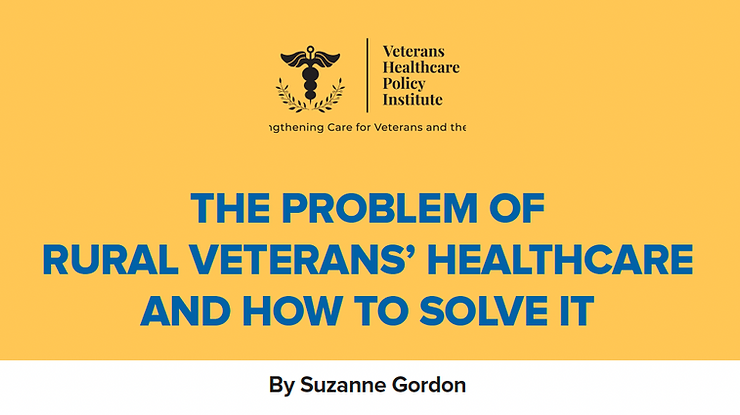Today, the Veterans Healthcare Policy Institute (VHPI) published a new report sounding the alarm over a number of misguided Congressional proposals that promise to increase healthcare access for veterans in rural areas. Entitled “The Problem of Rural Veterans Healthcare and How to Solve it,” the VHPI report warns that further privatization of the healthcare system run by the Department of Veterans of Affairs (VA) will weaken healthcare access for the 2.7 VA patients who live in rural areas. By diverting funds out of the Veterans Health Administration (VHA) to private sector providers and codifying one-size-fits-all access standards to private care, these legislative initiatives will also jeopardize the care of millions of veterans who live in urban areas.
The report argues that many current legislative proposals are based on the false promise that adequate private sector care exists in rural areas. In fact, as the report notes, most of rural America is a healthcare desert. Between 2005 and 2020, 170 rural hospitals closed. Another 600 – which constitute roughly 30 percent of all remaining facilities — are in danger of closing. Nearly every rural county in the country has a severe shortage of primary care and mental healthcare providers.
The VHPI report takes a close look at the access challenges facing Montana and Kansas, whose Senators—Democrat Jon Tester and Republican Jerry Moran—have introduced bills that would outsource more veteran care to the private sector. Tester and Moran claim that private sector doctors and hospitals deliver timely, conveniently located care to veterans. They ignore the fact that, as report documents, both states suffer from catastrophic shortages of mental health and primary care providers and that many of their remaining rural hospitals are at imminent risk of closure.
The report concludes with innovative ideas about how to solve the rural healthcare crisis and genuinely serve rural veterans and their families and communities now and into the future. As the report states, “Just as the VHA has led the way in primary care, the integration of primary and mental healthcare, geriatric care, patient safety, health equity, research, teaching, and emergency preparedness, the VHA can also become an important player in remedying the rural healthcare crisis for veterans and non-veterans alike.”
To read the entire report, click here.



